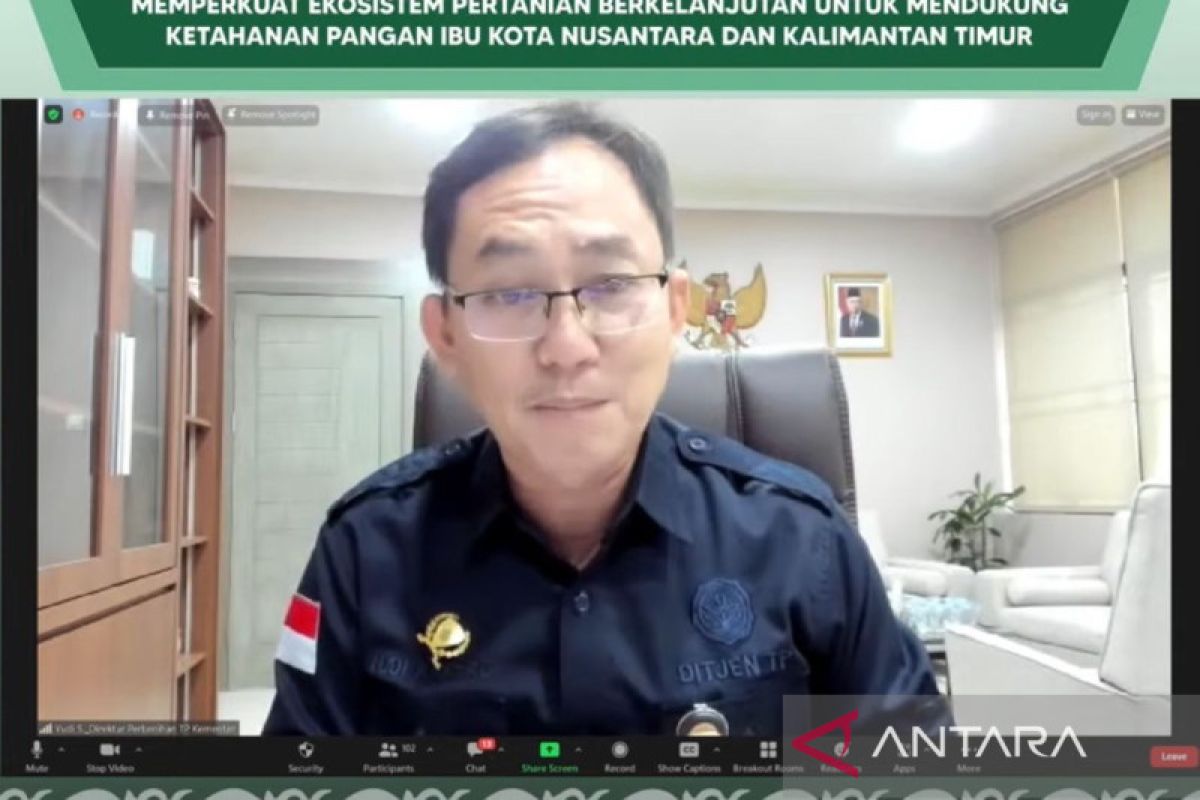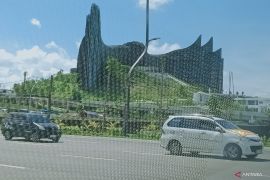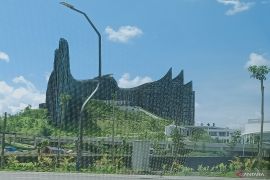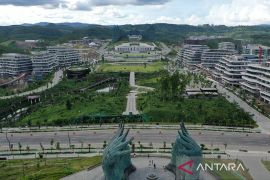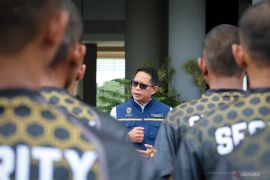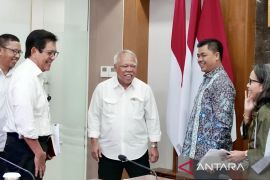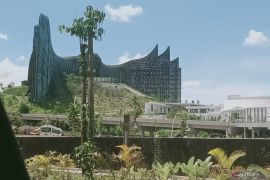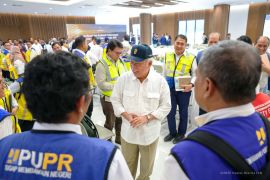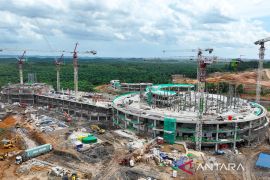"Urban farming, if implemented in urban areas (IKN, ed.), can meet food needs, with a percentage of 30 to 40 percent," Sastro noted in a symposium titled "Strengthening Sustainable Agricultural Ecosystem to support Food Security in IKN and East Kalimantan" monitored online in Jakarta, Tuesday.
According to Sastro, urban farming can be conducted at all places, such as in green open spaces (RTH), roof garden in flats, and yards in houses located in IKN.
He said that in future, people, living in IKN, can be encouraged to conduct urban farming depending on the regulations and concepts to be given later.
"It can be encouraged to cultivate food crops. Now, rice cultivation technology can be applied without using soil," he remarked.
In addition, he noted that other types of plants, such as horticultural crops, can also be developed in a pot with soil medium, and without soil, such as hydroponics, aquaponics, and aeroponics.
He also remarked that the plant cultivation approach, with a zero waste concept, organic, environmentally friendly, and the use of municipal organic waste can be applied in the efforts to conduct urban farming.
According to Sastro, social engineering to implement urban farming needs to be conducted, so that the program can be implemented well.
"Also regarding mindset and behavior, how to change what used to be farming on wide open land, and now, on narrow land," he remarked.
He expressed optimism that the application of urban agriculture in IKN can run well, so that it can meet the need for food, with no carbon footprint and high quality.
Related news: C Kalimantan urges residents to carry out urban farming
Related news: Jakarta entrenching food security by boosting urban agriculture
Related news: BI encourages community-level urban farming to control inflation
Translator: Sean Filo Muhamad, Cindy Frishanti Octavia
Editor: Azis Kurmala
Copyright © ANTARA 2023
